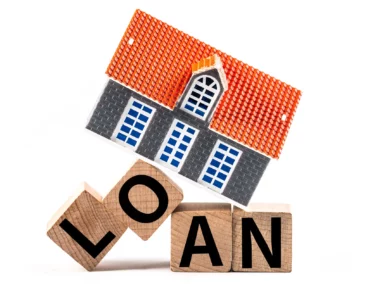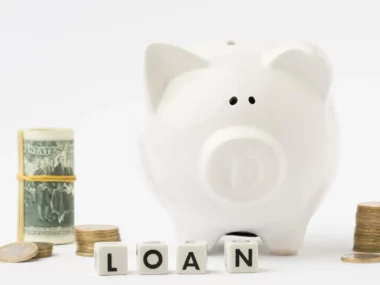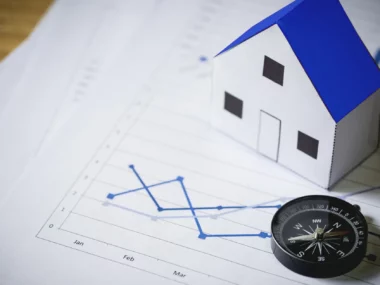Table of Contents
When it comes to getting any type of loan, the significance of one’s credit score can’t be overemphasized. It is usually the first thing that any lender would consider before agreeing to loan you money.
A good credit score goes as far as determining whether you get a loan with a favourable interest rate or even if you will get one at all.
It is important to take care of one’s credit score and ensure to keep it in good condition. One of the ways to do this is to ensure to pay your debts on time and never default on any payment. Settling your bills late or defaulting on loans can quickly ruin your credit score, which will come back to haunt you if you ever need to get a loan.
It is no secret that purchasing a house is a huge project that requires a substantial amount of money. Unless you have a big chunk of money stashed somewhere, there is usually the need to get a mortgage (home loan) to help in purchasing one’s dream home.
Just like any other loan, getting a mortgage (home loan) requires a good credit score, and on top of that, a down payment is usually required.
However, having a bad credit score doesn’t necessarily eliminate your chance of getting a mortgage, it just means you would have to find the right lender who would be willing to loan you money despite your subpar credit.
In this article, we will be discussing what a credit score is, how it works, how to take care of it, and How To Buy A House With A Bad Credit Score In 2023.
For an in-depth understanding of bad credit score, you can read this
Bad Credit Score in 2024: What is a credit score?
A credit score is a three-digit number, typically between 300 and 850, that depicts your credit behaviour. It is what creditors such as banks and credit card companies consider to determine your attitude regarding loan repayment.
Your credit score tells the creditor about your previous bills and loans and how you have handled them. This gives the creditor an idea of what to expect if they lend you money, i.e. whether you will pay back on time, late or not even bother to pay at all.
Your credit score doesn’t only determine whether you will get a loan or not, it also determines the interest rate and other loan terms on whichever loan for which you are eligible.
A bad credit score can either hinder you from getting a loan or fetch you a loan with a high-interest rate.
How many credit scores can I have?
Although credit scores are usually discussed as a single factor, each individual actually has more than one credit score. This means that your credit score usually varies depending on the financial situation you’ve found yourself.
Below are some of the factors that determine what your credit score is at a particular point in time.
1. Credit Reporting Agency: Since there is more than one credit reporting agency (CRA) that provides credit score to lenders, the CRA that is providing your credit score can determine what your credit score will be.
2. Scoring model: The scoring model adopted by the CRA giving your credit report will also determine what your credit score will be.
3. Type of Loan: The type of loan that you are applying for can also determine what your credit score will be. For example, if you are applying for a mortgage loan, the lender may focus only on your history of paying back mortgages and ignore any other type of loan in your credit report. The implication of this is that if you have a good reputation for paying back mortgages on time but are delinquent with other types of loans, the lender might consider your credit score to be good.
What is a Credit Scoring Model?
This is the scoring system that is employed when it comes to calculating your credit score. The most popular credit scoring model is the FICO credit scoring model, which was designed by the Fair Isaac Corporation. Creditors have been using FICO scores to assess people’s creditworthiness since 1989.
However, there is another credit scoring model known as VantageScore. It was designed by the three credit bureaus – Equifax, TransUnion, and Experian. Since each of these scoring models use different algorithms to calculate credit scores, there is a chance that the credit report provided by them will differ.
Also, the number considered to be a bad credit score by FICO may still be acceptable if the lender uses VantageScore.
What is generally regarded a good credit score?
Several benefits come with having a good credit score when you’re trying to get a loan. It increases your chances of getting a loan and also assures the lender of how responsible you are when it comes to your finances. This leads to getting a loan with a low-interest rate.
Credit scores usually differ and what they represent will vary based on the scoring model used to calculate them. This takes us to the two scoring models adopted by lenders.
FICO Scoring Model
- 300-579: Poor
- 580-669: Fair
- 670-739: Good
- 740-799: Very good
- 800-850: Excellent
Vantage Score
- Below 500: Very Poor
- 500–600: Poor
- 601–660: Fair
- 661–780: Good
- 781–850: Excellent
Factors Considered When Calculating Your Credit Score
Below are some of the factors considered in the course of calculating your credit score:
1. Your previous debts, whether you’ve paid them, and how long it took you to pay them.
2. Your current debts.
3. Loans that you have taken in the last, whether for yourself or for someone else.
4. Your credit cards and store cards.
5. Accounts that you’ve opened and/or closed.
6. Bankruptcy.
7. Your present credit limit.
8. The length of your credit history.
What Causes a Bad Credit Rating?
Many elements ruin one’s credit rating and give him or her a bad credit score. Let’s take a look at some of them.
1. Missed or Late payments: If you have a habit of making late payments on your bills or loans, it is bound to negatively affect your credit rating and lower it to a “poor” grade.
2. Identity theft: Another factor that can ruin your credit is if you have your credit card stolen by someone who ends up using it to make large purchases and incur massive debts. This will give you a bad credit rating which will take you a long time to repair.
3. Bankruptcy: When you declare bankruptcy, it wreaks significant havoc on your credit rating.
4. Absence of credit history: When you don’t have any previous debts which you’ve either settled or not, there will be no information to use to check your creditworthiness. The credit reporting agency (CRA) will have no information to use to provide a credit report, which means the lender has no idea the kind of attitude you adopt when it comes to paying your debts. This will give you a bad credit rating.
5. Picking the wrong credit card: When you collect a credit card with a credit limit that is way above what you can afford to repay, you might start falling behind on your payments and this will affect your credit rating. The same goes for credit cards with interest rates and fees that you can’t afford.
How do I improve my Credit Score?
1. Don’t be tardy with your payments: one of the quickest ways to improve your credit score is to start paying your bills in a timely fashion. If you can do this for at least 6 months, you should start seeing a positive change in your credit score.
2. Do not shut down a credit card account: Under no circumstance should you close a credit card account. Even if you are no longer using it, it is best to leave it open, as closing it can harm your credit score.
3. Seek the help of credit repair companies: Another way to improve your credit score is to work with credit repair companies who will work out an arrangement with your creditors and the CRA on your behalf. You will of course have to pay for the company’s services.
4. Settle previous debts: You should also try as much as you can to settle any debt that you may have in your financial history. This will help to improve your credit score.
What Is a Mortgage?
A mortgage is a type of loan taken for the sole purpose of a house, land, or any other type of real estate. The lender grants the borrower a particular amount as a loan, and the borrower is expected to pay back the loan with interest within a period.
To get a mortgage, a borrower is expected to meet certain requirements such as a minimum credit score and a down payment. Mortgages are a type of secured loan, as the purchased property serves as collateral for the loan.
Types of Mortgages
1. FHA Loan: A Federal Housing Administration (FHA) loan is a government-backed home loan that allows a borrower to put less money down (3.5% down payment) even when they have bad credit. This type of loan doesn’t require a good credit score or a big down payment. However, a borrower is expected to pay two types of mortgage insurance to protect the FHA-approved lender against losses if the borrower defaults on payments. This type of mortgage is highly recommended for first-time home buyers.
2. USDA Loan: The U.S. Department of Agriculture (USDA) home loans program offers zero-down-payment home loans to low-income residents of rural areas who for one reason or the other are unable to get a conventional home. These loans are backed by the USDA Rural Development Guaranteed Housing Loan Program, a part of the U.S. Department of Agriculture.
You can either get these loans directly from the department or from partner lenders. One of the many advantages of this type of mortgage is that it doesn’t require a down payment or a mortgage insurance. It also has a lower rate compared to conventional home loans.
Types of USDA loans include Loan guarantees, Direct loans, and Home improvement loans and grants.
3. VA Loan: Also known as the Department of Veterans Affairs home loan, this is a special type of mortgage guaranteed by the U.S. Department of Veterans Affairs (VA). It is meant for qualified veterans as part of their military benefits. They are usually issued by private lenders that are insured by the government. A VA home loan offers lower interest rates and lower closing costs which make home buying very affordable for veterans and active military members.
Types of VA Loans include VA Purchase Loan, VA Interest Rate Reduction Refinance Loan (IRRRL), VA Cash-Out Refinance, and VA Energy Efficient Mortgage.
4. Conventional Mortgage: This is a mortgage granted by private lenders. Conventional loans usually have higher interest rates and require a higher credit score compared to FHA. Since the loans are not insured by the government, the private lender takes measures to secure their financial stake. You can get a conventional mortgage through banks, credit unions, and mortgage companies. Also, these loans usually have a fixed interest rate.
Types of Mortgage Loans and their credit requirement
As it has been established, a higher credit score will always get you loans with low-interest rates. However, the minimum credit score that a lender will request will depend on the type of loan that a borrower is applying for. Here are the credit score minimum guidelines for some types of loans.
| Loan type | Credit Requirement | |
| 1. FHA Loan | 580 (to be eligible for a 3.5% down payment) | |
| 2. Conventional Loans | 620 | |
| 3. USDA Loans | 640 |
Credit Score and Mortgages
While it is true that your credit score isn’t the only factor considered by lenders when you are applying for mortgage loans, it remains a very significant one. Having a great credit score increases your chances of getting a mortgage with a low interest rate and other favorable loan terms.
It is also important to point out that the type of mortgage you are applying for will determine the minimum credit score that a mortgage lender will accept.
How to Buy a House With Bad Credit in 2024
When shopping for mortgage, it is important for a borrower to have a good credit, so as to increase their chances of getting a home loan.
However, there are certain people with bad credit score who wish to apply for a mortgage. If you fall in this category, don’t despair, as there are certain types of mortgages that you can apply for and get. Let’s take a look at some of them.
1. FHA loan: Since these loans are backed by the Federal Housing Administration (FHA), lenders usually accept a credit score as low as 580 with a 3.5% down payment, or as low as 500 with a 10% down payment. Although lenders offer loans with lower rates compared to other mortgage types borrowers are often required to take out mortgage insurance.
2. USDA loan:If you meet certain requirements, you can get a loan from lenders that are backed by the U.S. Department of Agriculture, even when you have a bad credit These loans don’t usually require a down payment.
3. Fannie Mae HomeReady Loan: Offered by Fannie Mae, a government-backed entity that is a major market-maker in mortgages, HomeReady loans are also a way out for people with bad credit. Not only do lenders accept a low credit score, they also allow borrowers to put down a low down payment.
4. VA loan: Veterans, active military members, and their spouses are eligible for VA loans which doesn’t require a good credit score or a down payment. These loans usually have lower interest rates compared to conventional mortgages.
In Summary:
Although having bad credit can stop you from getting some loans, the good news is that you can always find some lenders who would be willing to loan you money to buy your dream home despite your bad credit score.
Now that you are familiar with How To Buy A House With A Bad Credit Score in 2024, it is left to you to choose the right lender and fulfil your dream of owning a house.






